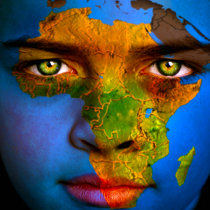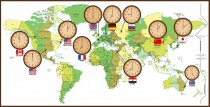Category Archives: Author

“Third Cinema” in Pigments
(Franz Masereel’s woodcut for the first edition of Pigments #1953514; Photographs and Prints Division, Schomburg Center for Research in Black Culture, The New York Public Library) In the article “Cultural Identity” and Diaspora, Stuart Hall discusses what he calls be

“Third Cinema” in Pigments
(Franz Masereel’s woodcut for the first edition of Pigments #1953514; Photographs and Prints Division, Schomburg Center for Research in Black Culture, The New York Public Library) In the article “Cultural Identity” and Diaspora, Stuart Hall discusses what he calls be

Ceci n’est pas des gens.
As complex as people and the world and the universe are, on almost every level, there always seems to be this pressure for things to be definitive. We want something static, something stable and immutable that we can pin

Ceci n’est pas des gens.
As complex as people and the world and the universe are, on almost every level, there always seems to be this pressure for things to be definitive. We want something static, something stable and immutable that we can pin

Taking a Hammer to “Cultural Identity”
Stuart Hall, in his essay on “Cultural Identity and Diaspora”, gives the term “cultural identity” a two pronged definition saying first, that it can be defined “in terms of one, shared culture, a sort of collective ‘one true self’ …

Taking a Hammer to “Cultural Identity”
Stuart Hall, in his essay on “Cultural Identity and Diaspora”, gives the term “cultural identity” a two pronged definition saying first, that it can be defined “in terms of one, shared culture, a sort of collective ‘one true self’ …
Transcending Time and Place/Space
In the (generally) optimistic messages of both both Derek Walcott’s speech and Negroponte’s article, I honestly started out looking for parallels in the works. I noted major ideas and tried to track them through both pieces, hoping to come to
Transcending Time and Place/Space
In the (generally) optimistic messages of both both Derek Walcott’s speech and Negroponte’s article, I honestly started out looking for parallels in the works. I noted major ideas and tried to track them through both pieces, hoping to come to

Miss Always Stressed the Importance of Re-reading
In the introduction of Antonio Benitez-Rojo’s The Repeating Island, he presents a thought-provoking and illuminating concept; one that most certainly rouses the quintessential scholar or budding scholar of Caribbean literature and culture. This idea of “rereading” the Caribbean I have

Miss Always Stressed the Importance of Re-reading
In the introduction of Antonio Benitez-Rojo’s The Repeating Island, he presents a thought-provoking and illuminating concept; one that most certainly rouses the quintessential scholar or budding scholar of Caribbean literature and culture. This idea of “rereading” the Caribbean I have

Dualistic Chaos
In looking at Repeating Islands and in reading Antonio Benitez-Rojo’s The Repeating Island: The Caribbean, there is more in common that simply a name. The author brings up the theme of dualism and Chaos, with a capital ‘C’ for reasons

Dualistic Chaos
In looking at Repeating Islands and in reading Antonio Benitez-Rojo’s The Repeating Island: The Caribbean, there is more in common that simply a name. The author brings up the theme of dualism and Chaos, with a capital ‘C’ for reasons
Reflections and Connections
Much like my colleague, Jamal George, establishes in his post “Time Zones”, time, specifically the idea of the future and how the past defines the present is very important in defining Digital life in the Caribbean and world as we
Reflections and Connections
Much like my colleague, Jamal George, establishes in his post “Time Zones”, time, specifically the idea of the future and how the past defines the present is very important in defining Digital life in the Caribbean and world as we

Time Zones
What criteria is a first world country defined by? The list of developed nation characteristics may range from a generally high average income per capita of the population to a majority of the population living in cities and receiving relatively

Time Zones
What criteria is a first world country defined by? The list of developed nation characteristics may range from a generally high average income per capita of the population to a majority of the population living in cities and receiving relatively

